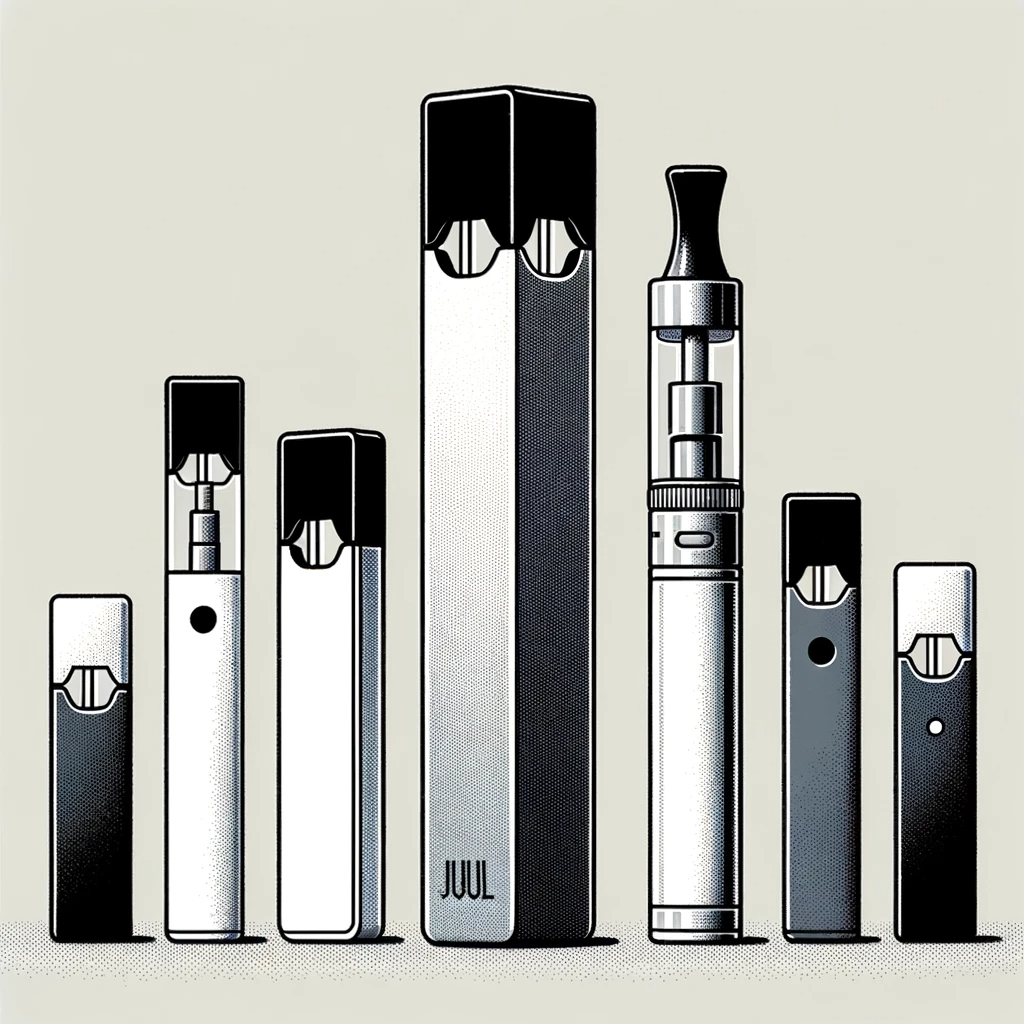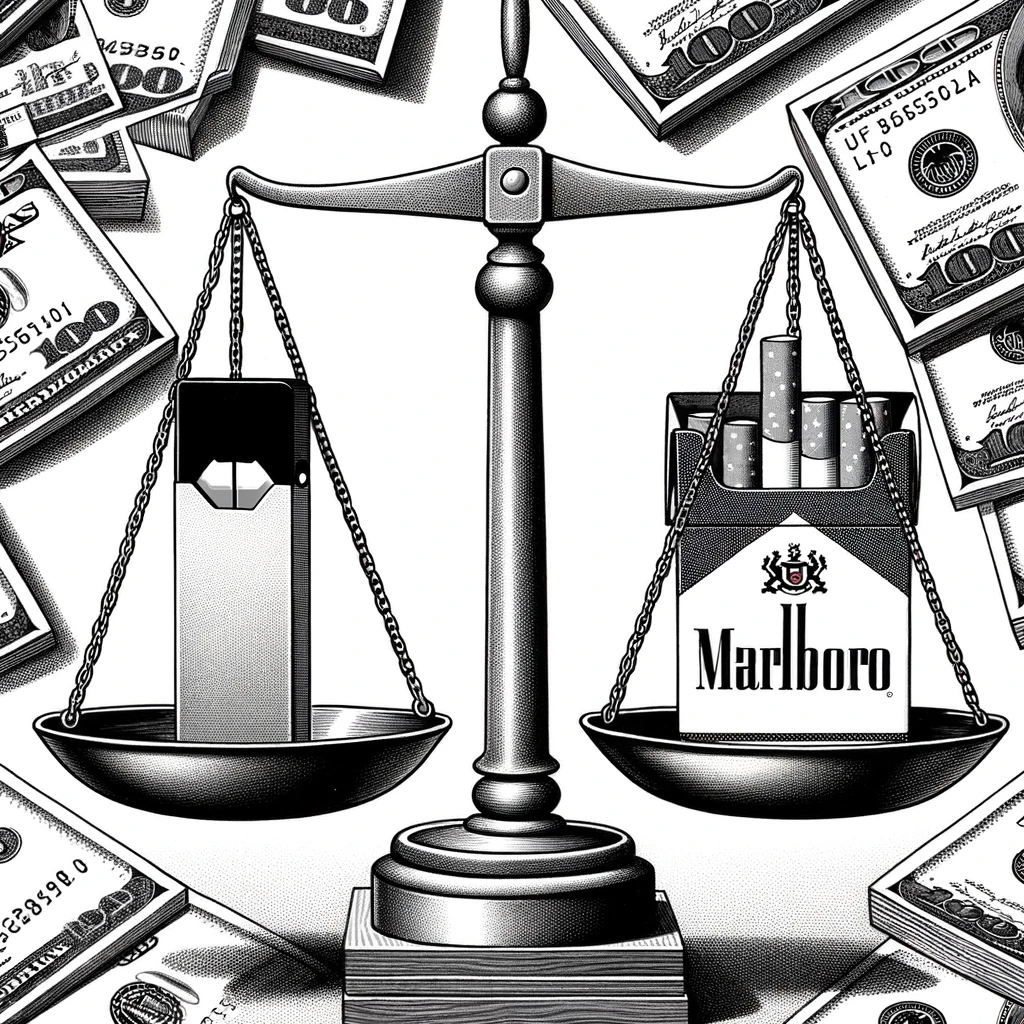The sleek, USB-shaped e-cigarette Juul took the vaping world by storm when it launched in 2015. Seemingly overnight, “Juuling” exploded in popularity, especially among teenagers. But in recent years, Juul’s fortunes have taken a dramatic turn.
This fascinating saga of rapid growth followed by controversy and decline holds important lessons about marketing, regulation, and corporate responsibility.
Juul’s Discreet Design Led to Widespread Teen Use
A key factor in Juul’s initial appeal was its inconspicuous, high-tech design. Unlike previous vapes, Juul devices didn’t look like cigarettes. They could pass for a flash drive.

This enabled discreet use, especially among teens. Students easily concealed Juuls in sweatshirt sleeves, inhaling and exhaling vapor undetected in classrooms.
With candy-like flavors like mango and cool mint, Juuling quickly spread through middle and high schools.Soon viral videos of teens Juuling in school and at home fueled the trend.
Viral Marketing Tactics Reached Young Users
Juul relied heavily on social media and influencer marketing to promote its products. The company attracted thousands of organic posts by supplying free devices to popular Instagram personalities.

Affiliate programs rewarded bloggers for positive Juul reviews and social media posts. This indirect peer-to-peer marketing proved incredibly effective at reaching young demographics.
Some schools even received visits from Juul representatives posing as mental health speakers. Rather than warning of vaping risks, they defended and normalized Juul use among students.
Health Impacts Led to Crackdowns
By 2018, the Juul craze was blamed for an epidemic of teen nicotine addiction. In response, the FDA pressured Juul to stop selling flavored pods in convenience stores.

Anti-vaping advocates and parents lobbied for strict regulations. Although not directly linked to Juuls, a spate of vaping-related lung illnesses led many states to raise the minimum vaping age to 21.
These health concerns brought intense scrutiny to the vaping industry. While Juul took early action to restrict youth sales, its brand had become synonymous with the teen vaping crisis.
Big Tobacco’s Involvement Drew Controversy
Initially eager to distance itself from combustible cigarettes, Juul accepted a $12.8 billion investment from Marlboro maker Altria in 2018.

This irked health advocates and Juul’s own employees, who questioned the move after years of anti-smoking marketing. But the cash injection gave Juul badly needed funds to compete in the crowded vape market.
In the public eye, however, Juul was now lumped in with Big Tobacco, rather than viewed as an innovative tech startup aiming to eliminate smoking.
Regulatory Crackdown Led to Juul’s Downfall
Citing a lack of sufficient safety data, the FDA rejected Juul’s application to keep selling its products in the US in 2022. Juul filed an appeal, which led the agency to temporarily suspend its marketing denial.

But while Juul vaporizers are still available for now, its prospects look increasingly bleak. The FDA continues reviewing whether Juul products meet public health standards for remaining on the market.
Juul has halted all US advertising and social media. And it faces thousands of lawsuits alleging it intentionally marketed to minors and downplayed risks.
The spectacular rise and fall of Juul stands as a stark example of the importance of responsible marketing. In just a few short years, a hot startup became a public health villain in the eyes of many.
Juul’s legacy serves as a warning for vape companies and other marketers about the consequences of unchecked growth. Putting profits over ethics rarely ends well.
Key Takeaways from the Juul Story
- A discrete, high-tech design enabled widespread teen use of Juuls in schools.
- Viral marketing and influencer promotion reached youth despite restrictions.
- Health impacts from teen vaping eventually led to crackdowns.
- Linking up with Big Tobacco damaged Juul’s image as an innovator.
- Stringent FDA regulation has severely threatened Juul’s future.
The drama surrounding Juul illustrates how quickly public sentiment can turn against irresponsible market leaders. But smarter regulation and ethical practices can help build consumer trust in emerging industries like vaping.
Meet Nick Schager, the co-founder of our vaping website. With a solid foundation of over 10 years in the industry, Nick brings an unparalleled depth of knowledge, having an extensive understanding of more than 1000 vaping products.




